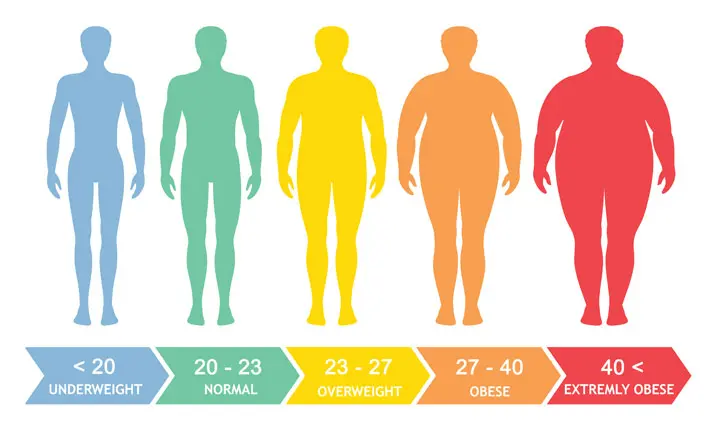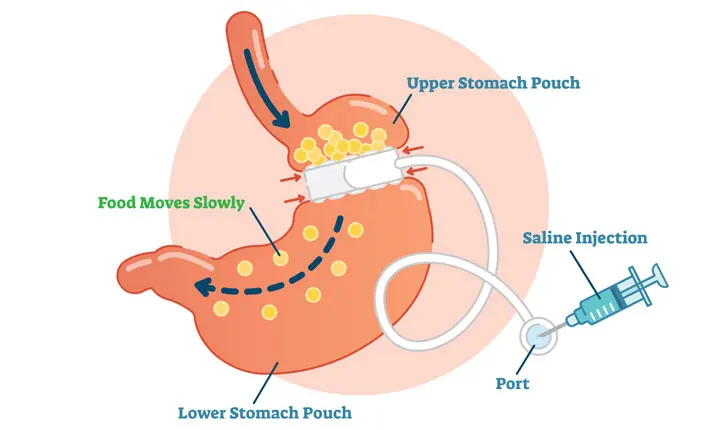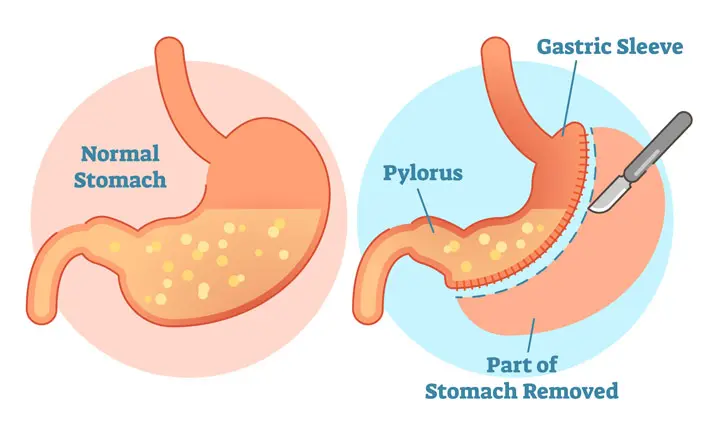What is bariatric surgery?
Bariatric surgery, also known as metabolic surgery, refers to weight loss surgical procedures that are done for the treatment of obesity. Obesity is an excessive accumulation of body fat that might affect your health. It is a chronic and progressive disease that could lead to health problems that can reduce life expectancy. Obesity is a major risk factor in the development of metabolic syndrome, which is associated with elevated blood sugar (diabetes), elevated blood pressure (hypertension), elevated blood cholesterol and lipids (dyslipidemia), leading to heart disease and stroke.
Bariatric surgery makes changes to the digestive system by restricting how much you eat in one sitting or how nutrients are absorbed by the body or both. It is a major procedure that is usually permanent and it requires long-term adjustments to your diet and lifestyle. It also carries an inherent risk as with all major surgeries and is generally recommended only when obese patients fail to lose weight by conservative measures, such as diet and exercise.
Who should go for bariatric surgery?
The Body Mass Index (BMI) is probably the best way of assessing obesity. You can calculate your BMI with this formula:
BMI = weight in kilograms / height in metres2.
You are considered healthy if your BMI is between 20 – 23. An overweight person's BMI falls between 23 – 27 while an obese person has a BMI between 27 – 40. These cut-off values tend to be lower than those recommended for Caucasians as it has been found that Asians develop medical complications from obesity earlier.
A bariatric surgery is recommended if you are morbidly obese with a BMI above 40 (or BMI > 37.5 for Asians). If you have weight-related metabolic syndrome, surgery is recommended for those with BMI > 27.
Bariatric surgery procedures
There are several types of operations that can be done to achieve sustainable weight loss. These weight loss surgeries can be performed by either conventional open surgery (as we used to do in the past) or by minimally invasive laparoscopic surgery (the preferred approach today).
The most common bariatric surgery procedures are:
- Gastric bypass
- Sleeve gastrectomy
- Adjustable gastric band
- Biliopancreatic diversion with duodenal switch
Each of these surgeries has its own advantages and disadvantages in terms of weight loss achieved and maintenance, complexity of procedure, and risk of complications.
Laparoscopic surgery
Laparoscopic surgery uses a telescope and long, fine calibre instruments that are inserted into the abdomen to see and perform the surgery. The incisions used are 5 – 12mm in size. Since only "keyhole" incisions are used, the post-operative functional recovery is rapid. Most patients have a shorter recovery time and are able to return to their daily activities earlier. There is also minimal scarring as the small incisions require fewer stitches.
Different types of bariatric surgery act in different ways to achieve weight loss. They are generally described to be either restrictive or malabsorptive in nature.
Laparoscopic gastric banding
Restrictive procedures (such as Laparoscopic Gastric Banding or Lap-Band surgery) produce early satiety and fullness after a small meal by gastric restriction. A pliable silicone band is inserted around the upper stomach and stitched into place, creating a small gastric pouch that limits the quantity of food that the stomach can hold.
This produces a feeling of satisfaction and fullness even after a small meal. As the gastric band slows down the emptying of food from the pouch, you will remain full for a number of hours after each meal.
The gastric band is attached to a reservoir port that is implanted under the skin over the breastbone. If required, saline can be injected into this port to adjust the size of the band after surgery. The procedure can be done in the clinic and it allows us to calibrate the amount of weight loss required.
Laparoscopic gastric bypass
Malabsorptive procedures (such as the Laparoscopic Gastric Bypass) creates a state of altered absorption in the gastrointestinal tract by diverting food away and preventing nutrients from being taken into the body by the small intestines.
During the gastric bypass procedure, the top of the stomach is stapled and divided to create a small egg-shaped pouch in the upper stomach. This is then connected to the lower part of the small intestine in a "Y" configuration.
Food is diverted by this bypass and is only absorbed in a short segment of the intestines. It is very effective in producing profound weight loss but it may also result in long-term vitamin and nutrient deficiencies.
The majority of the stomach is disconnected from the continuity of the intestinal tract after bypass surgery and will no longer be accessible by endoscopy. For this reason, this operation may not be suitable for patients who are at risk for developing stomach cancer as future surveillance will be difficult.
Laparoscopic sleeve gastrectomy
Laparoscopic Sleeve Gastrectomy is a newer procedure and is increasingly popular as it has a very good safety and efficacy profile. This procedure converts the stomach into a long narrow tube about the shape and size of a banana. It is a food limiting procedure (rather than restrictive) as the amount of food the patient can eat will be reduced.
The rapid delivery of food into the small intestines also enhances the effect of intestinal hormones to bring down blood sugar, thereby reversing diabetes in patients who have metabolic syndrome. The sleeve procedure also removes the part of the stomach that produces ghrelin, the hormone responsible for stimulating hunger.
The patient no longer feels hungry even when very little food is consumed. The natural continuity of the gastrointestinal tract is maintained and avoids the risk of nutrient and vitamin deficiencies seen in patients after gastric bypass surgery.
Which bariatric surgery procedure is right for you?
Which surgery is right for you is a decision best made between you and your healthcare provider. Your surgeon will be able to highlight the pros and cons of each procedure based on your requirements. All these procedures are meant to be permanent and not reversible except for laparoscopic gastric banding.
The gastric banding procedure is therefore sometimes preferred for adolescents and teenagers as it can be taken out in the future if the patient no longer requires it as they reached adulthood.
The expected hospital stay for all of these bariatric surgery procedures ranges from 2 – 4 days. You will be put on a liquid diet immediately after surgery, and re-introduced to pureed and solid foods gradually. In general, we target a weight loss of 0.5 – 1kg a week. You can expect to lose about 60 – 80% of your excess weight 2 years after surgery.
How weight loss surgery helps type 2 diabetes
We do not currently advocate surgery for diabetics with a BMI less than 27 or those not considered overweight. Bariatric surgery has been proven by clinical trials to reverse type 2 diabetes, but these studies were only done on diabetic patients who are also obese. There are some ongoing researches into the efficacy of surgery in low BMI diabetics that may shed light on the role of bariatric surgery for non-obese diabetic patients in the future.
In one long-term study that tracked 400 people with type 2 diabetes, 62% showed no signs of diabetes 6 years after bariatric surgery. They also showed improved blood pressure, cholesterol, and triglyceride levels.
Does health insurance cover bariatric surgery cost?
All bariatric and metabolic surgeries are done for strict medical reasons. It is not considered to be a cosmetic surgery done for aesthetic reasons. Whether the cost of surgery is covered by medical insurance depends on your specific plan, as some do not reimburse medical treatment for weight loss alone. In short, it is more likely that you will qualify for coverage if surgery is indicated as necessary to treat obesity-associated medical conditions rather than obesity alone.
Learn about using your medical insurance for your hospital bills here.
Are there side effects or risks from bariatric surgery?
Bariatric surgery is very safe in general. There are some inherent risks as with all major surgery, and complications include:
- Excessive bleeding
- Infection
- Adverse reactions to anaesthesia
- Blood clots and deep vein thrombosis
- Lung or breathing problems
- Intestinal leaks in staple line or joints
Longer term complications of bariatric surgery vary depending on the type of surgery. They can include:
- Bowel obstruction
- Dumping syndrome, causing diarrhoea, nausea or vomiting
- Gallstones
- Hernias
- Vitamin and nutrient deficiencies
- Stomach ulcers
In the long-term, you may not lose the weight you hoped for and the weight may return. This usually happens if you do not stick to your doctor's recommendations or fail to make the required lifestyle changes including adopting healthy eating habits and a regular exercise regime.
Surgery alone is not the answer. You will need to be prepared to make lifelong lifestyle changes to benefit from bariatric surgery. Speak to your surgeon and have all your questions answered before you decide if bariatric surgery is right for you.
















